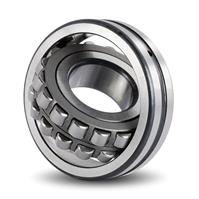elevator bearings
China elevator bearings manufacturer - High Quality, Factory Price,Offer elevator bearings OEM & ODM Service. Trade Assurance. Complete Specifications. Global After Sales.
Our goal is to exceed our customers’ expectation in providing quality bearing products and continue to improve the services we provide on a timely manner.
The equipment maintenance needs of the elevator industry impose especially great service life requirements on bearings. Our Company's bearings are widely used in elevators.
Elevator bearings are specialized components used in elevator systems to support the weight of the elevator car and ensure smooth and efficient operation. These bearings are subjected to high loads, continuous motion, and demanding operating conditions. Here are some important details, considerations, and features regarding elevator bearings:
1. Type: Elevator bearings can include various types, such as deep groove ball bearings, cylindrical roller bearings, spherical roller bearings, or thrust bearings. The specific type of bearing used depends on the application and load requirements.
2. Load Capacity: Elevator bearings are designed to handle the significant vertical and horizontal loads exerted by the elevator car and counterweights. They are engineered to provide high load-carrying capacity and reliability.
3. Durability: Elevator bearings are constructed using high-quality materials, such as chrome steel or stainless steel, to ensure durability and resistance to wear. They may undergo specialized heat treatment or surface coatings to enhance their strength and longevity.
4. Lubrication: Proper lubrication is crucial for the smooth operation and longevity of elevator bearings. Elevator systems often have dedicated lubrication systems or automatic lubrication devices to ensure a continuous supply of lubricant to the bearings. Regular maintenance and monitoring of lubrication levels are necessary to ensure optimal performance.
5. Sealing: Elevator bearings are typically equipped with seals or shields to protect them from contaminants, such as dust, dirt, and moisture, commonly encountered in elevator shafts. These seals help to prevent premature wear and damage, ensuring the longevity of the bearings.
6. Fit and Dimension: It is essential to choose elevator bearings that match the specific dimensions and fitment requirements of your elevator system. Consult the elevator manufacturer's specifications or consult with a bearing specialist to ensure the correct bearing size and fit.
7. Brands: Reputable bearing manufacturers, such as SKF, Timken, FAG, or NSK, offer a range of bearings specifically designed for elevator applications. Choosing bearings from well-established brands ensures quality, reliability, and compatibility with your elevator system.
8. Safety and Certification: Elevator bearings must adhere to specific safety standards and certifications, such as EN 81 or ASME A17.1, depending on the region and regulations. Ensure that the bearings you choose meet the necessary safety requirements for your elevator installation.
When selecting elevator bearings, consider the specific elevator type, load requirements, operating conditions, and manufacturer's recommendations. Working with a knowledgeable bearing supplier or technician can provide valuable guidance in choosing the right bearings for your elevator system, ensuring optimal performance, reliability, and safety.












